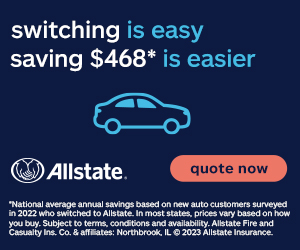Owning a car is both a privilege and an investment. The most important thing besides being a safe driver is to understand the fundamentals of vehicle mechanics. This knowledge will help protect your investment in the long run while circumventing potential maintenance issues that could turn into costly repairs.
Here are some of the most important things that every car owner should know:

Car Engine Oil
An oil change is the most common type of routine maintenance and also the most vital to keeping your vehicle running smoothly. Though every new car basically comes equip with electronic monitoring to notify the driver when it’s time for an oil change by displaying a light or message on the dash, it’s always good to know upfront how many miles it can go in between service and which type of oil is recommended by the manufacturer. There is a big cost difference between conventional and full synesthetic oil. The latter being almost exclusively used in hybrid and luxury vehicles. The old belief of needing an oil change every 3,000 miles has been proven unnecessary, rather 5,000-10,000 is the new average. Check your vehicle owners’ manual to find your make and model specific requirements.

Spare Tire
Almost all cars have a dedicated space to store a spare tire which you might need in an emergency situation. However, in an effort to cut costs, a new trend has been to replace a spare tire with sealant and inflator kits to save weight and fuel. However, if your vehicle does have one, it’s generally kept in the trunk. Though it might be an intimidating task, everyone should learn how to change a spare tire. It can certainly be challenging especially on larger vehicles, and may not be able to be done alone, but putting the effort in and doing a few test runs by changing a spare tire before an emergency occurs, can save you time on the side of the road in a bad neighborhood, with screaming children or in bad weather—until help arrives.

Changing Filters
Vehicles have several different filters all of which need to be changed relatively frequently. filters are generally changed with each oil change or every other. Cabin air filters generally need to be replaced every 15,000 to 25,000 miles or about once a year. Fuel-air filters generally last for 2 years so get changed about every 30,000 miles. Oil filters are generally changed every or every oil change or about 1-2 times a year. Lastly, your engine air filter should be changed every 15,000 to 45,000 miles. It has a large variance mainly due to driving conditions because its purpose to protect your car from dust, dirt and environmental contaminants. So if you do a lot of city driving or live in desert areas of the southwest you can expect to change your engine air filter more frequently.

Headlights and Taillights
Headlights allow drivers to see at night and in conditions with low visibility; taillights indicate your car’s presence to the drivers approaching from behind. You have to check these lights regularly and make sure they work properly as most vehicles do not have sensors to alert drivers that either went out. If any of these lights are not working, it might be especially dangerous for you to drive at night or in inclement weather. Aside from a safety concern, if the police catch you driving with either light out you may get a ticket, which should be reason enough to make it a priority!

Brakes
It’s a no-brainer how important brakes are but understanding when to take them in for service can be more challenging. A simple rule of thumb, if you hear any squeaking when you brake more than a day you should get them checked out. Sometimes brake can squeak if they’ve been sitting for a while (like after a long trip) or after periods of inclement weather (lots of rain, humidity or snow). It’s not necessary to go in immediately if you hear a noise as the noise often times will go away after being driven for a bit. If the noise is persistent do not hesitate to take it in as that can be an immediate safety concern as well as the longer you delay putting your brakes off the more expensive it is to repair. If you hear grinding when you stop that’s a telltale sign you’ve burned through your brake pads and are wearing down your rotors, which, depending upon the make and model of your car can be quadruple the cost of brake pads alone.

Get a Good Mechanic
You don’t have to necessarily know about cars to pick a good mechanic. The best way is to get a personal reference from a family member or friend if that doesn’t work look at reviews online. Does the mechanic have a good reputation? How many reviews are posted? How many complaints were made? Did the shop respond? Did the shop seem to care about the customers’ concerns’ and remedy the situation? Even if you have to drive further than you’d like, going to a reputable shop can save you more time (and money) in the long run.
